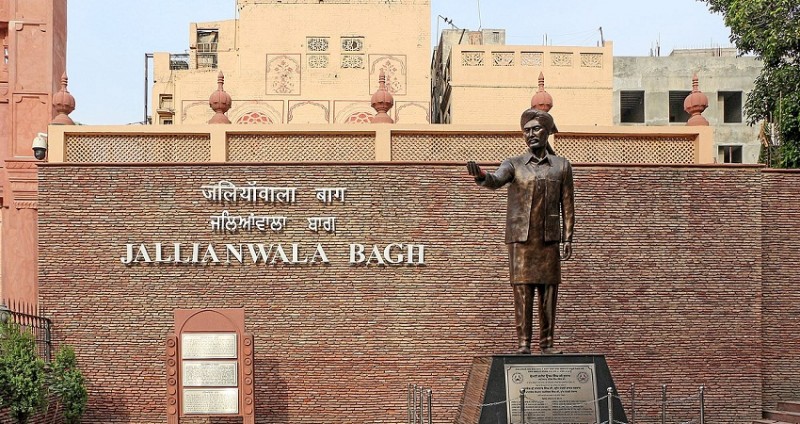
105 Years Since Jallianwala Bagh Massacre: A Tragic Chapter in India's History: April 13, 2024, marks the solemn anniversary of one of the darkest chapters in India's struggle for independence—the Jallianwala Bagh massacre. On this day 105 years ago, the tranquil town of Amritsar, Punjab, witnessed an unfathomable tragedy that shook the nation to its core. The Jallianwala Bagh massacre remains a poignant reminder of the brutal colonial oppression endured by the Indian populace under British rule.
The events of April 13, 1919, unfolded in the aftermath of the Rowlatt Act, a draconian piece of legislation that severely curtailed civil liberties and allowed for arbitrary arrests without trial. In protest against this repressive law, thousands of men, women, and children gathered at Jallianwala Bagh, a public garden in Amritsar, to peacefully demonstrate and voice their dissent.
What transpired next was a brutal display of colonial brutality. Acting under the orders of General Reginald Dyer, British Indian Army troops cordoned off the garden and opened fire indiscriminately on the unarmed crowd. Trapped within the confined space, the helpless civilians had no means of escape. The volley of bullets continued for a harrowing ten minutes, leaving a trail of death and devastation in its wake.
The exact number of casualties remains a matter of contention, with conservative estimates suggesting around 400 fatalities and over a thousand injuries. However, some accounts put the death toll much higher. Regardless of the precise figures, the sheer scale of the bloodshed shocked the conscience of the world.
The Jallianwala Bagh massacre ignited a wave of outrage and condemnation across India and beyond. It served as a catalyst for the Indian independence movement, galvanizing ordinary citizens to join the struggle against British colonial rule. Mahatma Gandhi, who was already emerging as the preeminent leader of the freedom movement, denounced the massacre as "an act of wanton and unprovoked cruelty."
In the aftermath of the massacre, the British government faced international condemnation, with calls for accountability and justice echoing across the globe. However, the response from the colonial authorities was woefully inadequate. While Dyer was eventually relieved of his command, he faced no legal repercussions for his actions. The lack of meaningful accountability further fueled resentment and strengthened the resolve of India's freedom fighters.
Despite the passage of 105 years, the wounds inflicted by the Jallianwala Bagh massacre remain raw in the collective memory of the Indian people. The site of the massacre, now a memorial, stands as a solemn reminder of the sacrifices made by those who laid down their lives in the pursuit of freedom and justice.
As India commemorates this somber anniversary, it is incumbent upon us to honor the memory of the martyrs of Jallianwala Bagh by renewing our commitment to the values of democracy, equality, and human dignity. The legacy of the massacre serves as a poignant reminder of the enduring struggle for freedom and the importance of safeguarding the hard-won gains of independence. Only by confronting the painful truths of our past can we pave the way for a brighter and more inclusive future.
April 13, 2024: Commemorating 36 Years of Siachen Day
Cosmonautics Day 2024: What Is It? Something Special You Need to Know